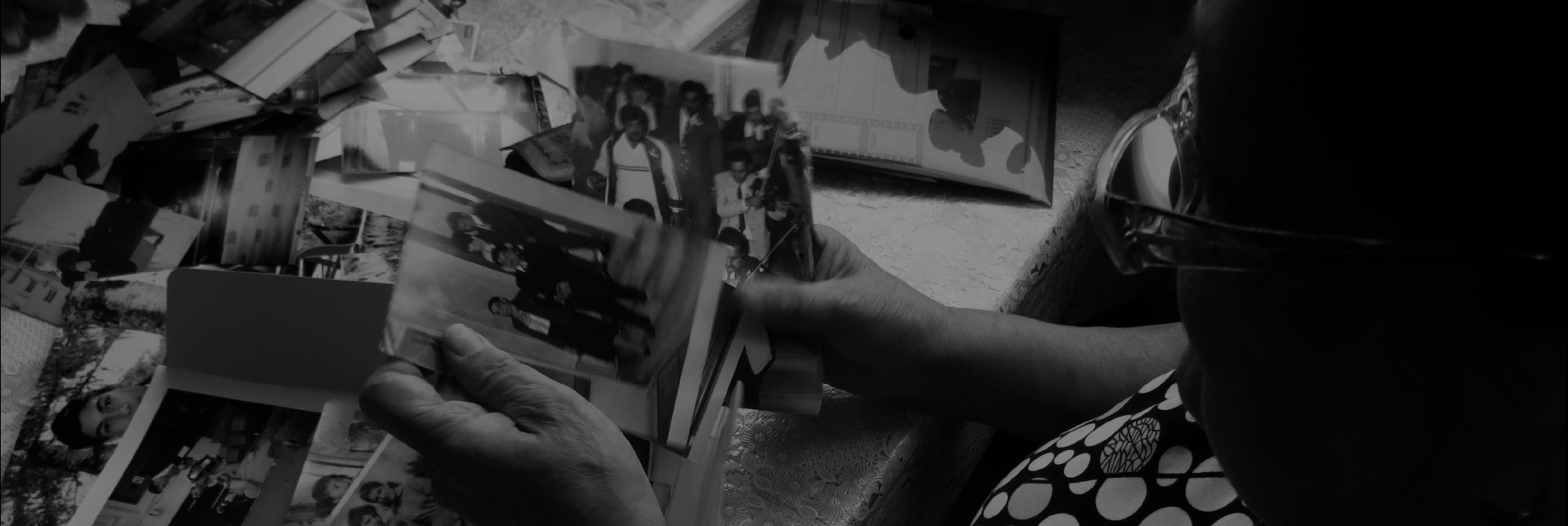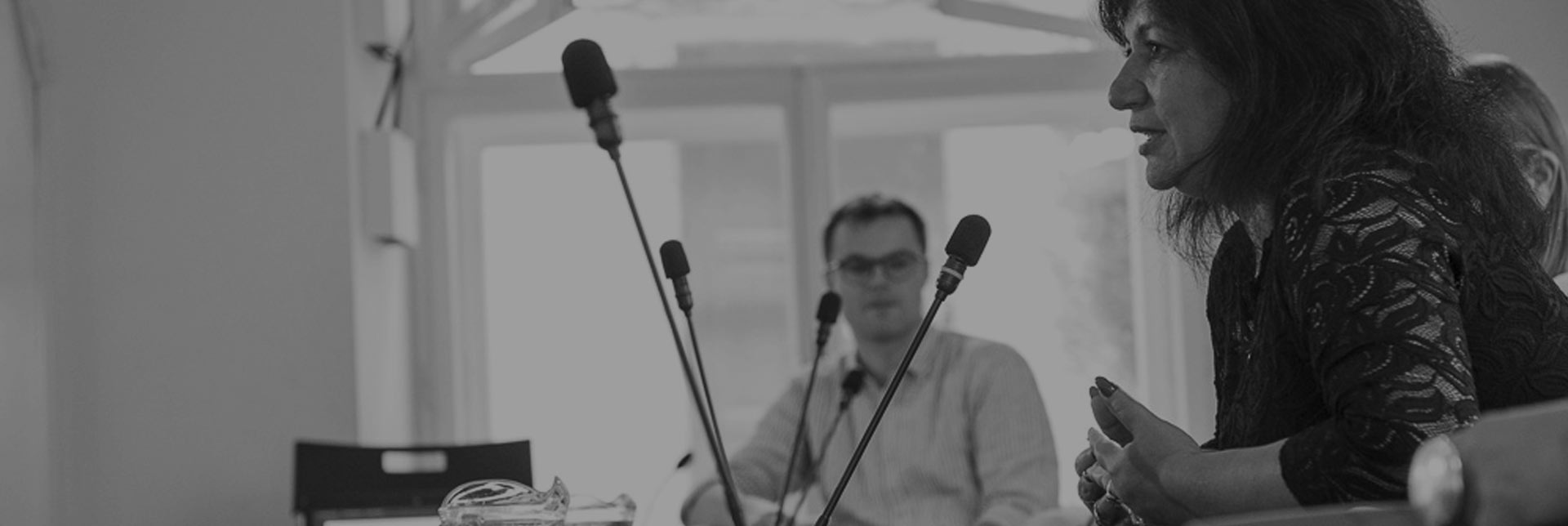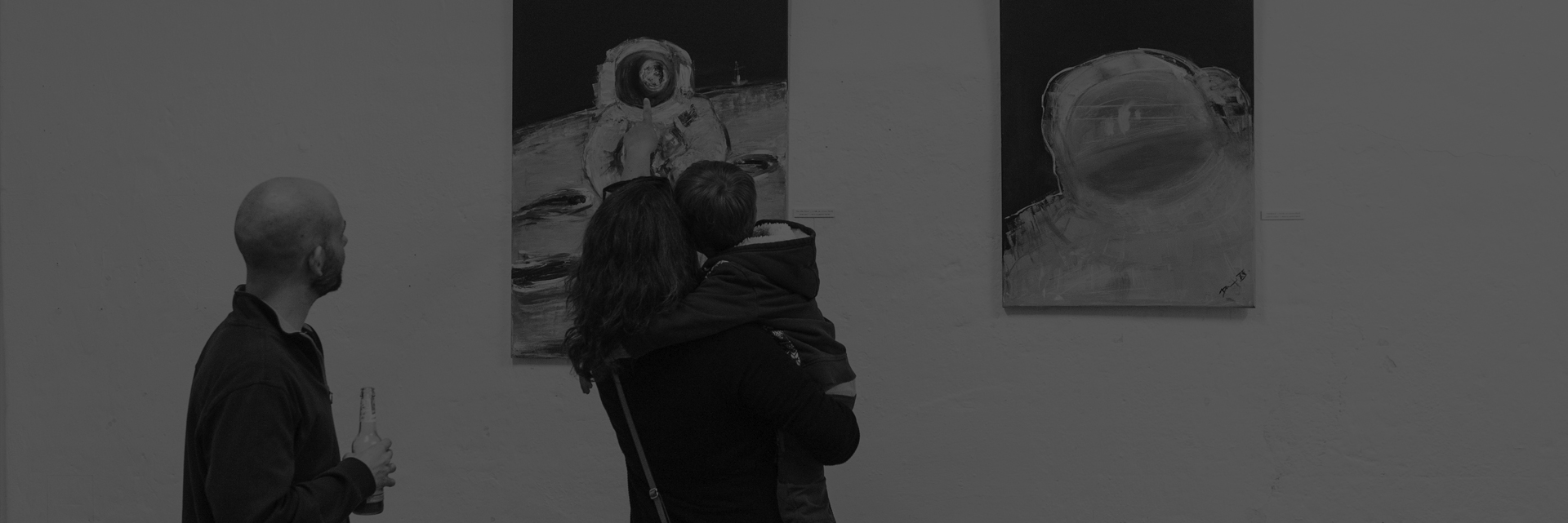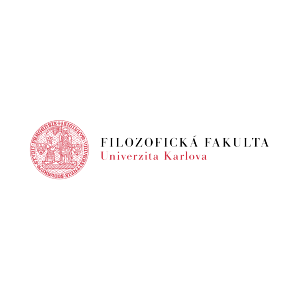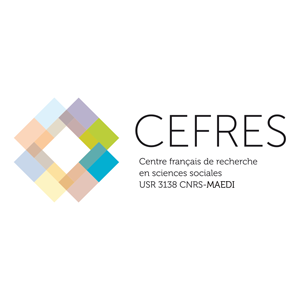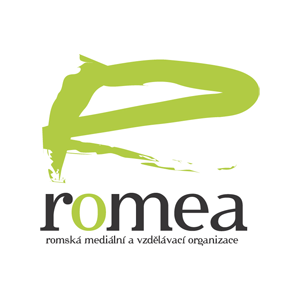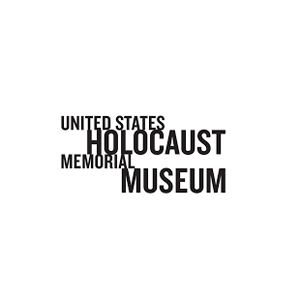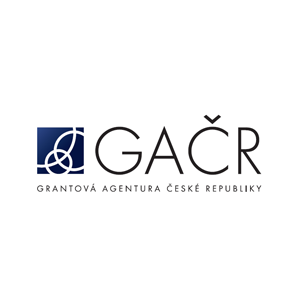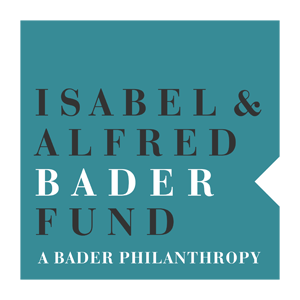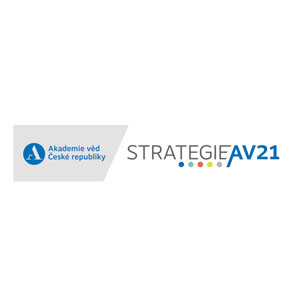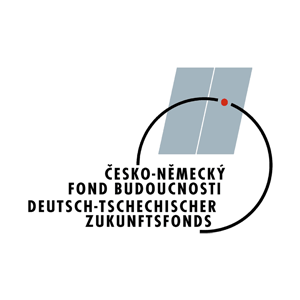Trajectories of Romani Migrations and Mobilities in Europe and Beyond (1945 – present)
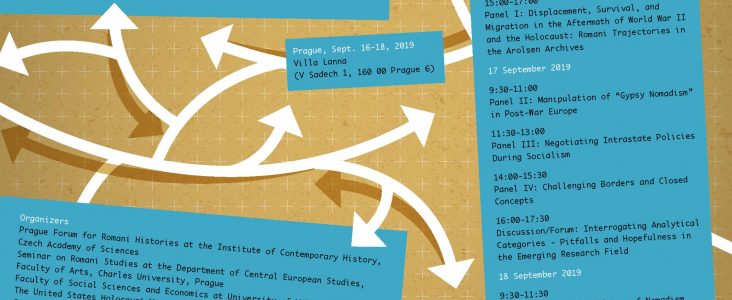
16-18 September 2019, Prague
The conference will bring together scholars from across a variety of disciplines to present empirically grounded accounts of the multiple dimensions of Romani mobilities since 1945 in order to analyse connections between various forms of past mobilities and migrations and the most recent movements of various Romani groupings. The conference will be held in Prague on September 16-18, 2019.
Over the past decade, a growing number of research projects, publications, and media have focused on Romani migrations and mobilities. However, most of these studies have only rarely combined the study of historical continuities and social trajectories shaping the present-day migratory movements. Anthropological and sociological accounts have documented contemporary strategies of Romani migrants, the production of legal classifications, and explored the politics shaping Romani mobilities. Additionally, the trope of “nomadism” has continued to inform the discussions as a foundational concept (often as a simplified “straw man”) that researchers embrace or oppose to explain their arguments. We invite researchers to interrogate the utility and limitations of this binary and to move beyond it through conceptually innovative analyses of movement, circulation, migration and the concomitant social and existential mobilities they imply in the context of the post-World War II era, bearing in mind that a large part of local Romani communities have been part of the European sedentary population.
The conference also aims to contribute to the incipient field of comparative studies of Romani mobilities with a focus on the second half of 20th century and from intersectional perspectives. Whereas recent research has documented the suffering and persecution of Romani groups during World War Two, post-war developments have not received the same measure of attention. These include, for instance, Romani experiences of returning to destroyed homes, government attempts to resettle and disperse Romani populations by force, labor and other internal migrations in search of better lives enchanted by the opportunities available in more industrialised cities, or navigating through ‘compensation schemes’ introduced by various state and international agencies.
Many members of previously persecuted minorities, including Roma, hoped for a better future in the context of massive post-war projects to restructure European states. In Central, Eastern and South-Eastern Europe most of the local Roma aspired – together with others – to greater social mobility and full membership through socialist citizenship. Socialist projects to reach the ‘greater common good’ and societal equality, however, also entailed forced displacements and new regimes of disciplining the Romani bodies to cultivate working-class citizens out of Romani/Gypsy groupings. On the other hand, post-war aspirations and trajectories of (social) mobility of the Roma in the ‘West’ remain largely unexplored, as well as the participation of Roma in movements and navigations across the East-West divide (and beyond). Similarly, relatively few studies explore the social mobility of Roma linked with gendered changes and (re)negotiation of inter-community relations, as well as other mechanisms and dispositifs along which members of Romani communities renegotiated their (stigmatized) ‘Gypsyness’ in post-war times.
Thus, we invite various contributions to explore a wide range of mobilities and different intersections and/or entanglements between often contradictory developments, which can be understood as a condition for mobility, including physical movement and a change in social position. Additionally, the conference organisers welcome empirical and theoretical discussions of Romani mobilities as oscillating between modes of dispersal and containment, between forced mobilities and efforts to carve out autonomous movements and spaces.
Conference themes and areas of interest
The conference aims to bring together various empirically grounded and historically informed studies exploring different kinds of mobility and immobility in Europe and beyond. Locating these mobilities in the broader political, social, historical and cultural contexts and forces, contributors are invited to reflect on both voluntary and forced migration, patterns of seasonal mobility, and various forms of mobility (e.g. existential, physical, social) as a reaction to oppressive conditions as well as newly opened possibilities. We welcome in particular proposals that focus on one or more of the following areas:
- Different trajectories and modes of Romani mobilities from 1945 to the present
- Movement as a mode of escaping oppressive and asymmetric conditions
- Intersectional studies of mobilities addressing gendered, classed, raced/ethnicised differentiations and other intertwined dimensions of social domination
- Connections between mobilities and forms of violence (physical, symbolic, everyday, structural)
- Romani migration during the period of socialist high-modernist policies – strategies deployed to attain upward social mobilities; forced displacements and resettlement schemes
- Mobility between oppressive policies of racial containment and dispersal, on the one hand, and resistance and resilience of various Romani individuals and groups, on the other
- Romani civil and political rights movements and their relation to physical and social mobility
- Continuities and discontinuities of migrations; historicizing the present moment and connecting past trajectories of migration and mobilities to current developments
- Methodological issues in exploring “histories of the present” of Romani migrations and mobilities
- Attempts at conceptualisation/critical revision of migration and mobility beyond the concept of “nomadism” and traditional “statist” tropes; examination of various modes of being beyond relying on the assumption of “Roma/Gypsy proneness to movement”
The conference will include a panel highlighting research based on the archival holdings of the International Tracing Service (ITS). The ITS collections include more than 35 million multi-page Holocaust-era documents relating to the fates of more than 17 million people who were subject to incarceration, forced labor, and displacement during and after World War II. The ITS is located and accessible for research in Bad Arolsen, Germany, as well as in digital copy at seven other locations around the world, including the US Holocaust Memorial Museum in Washington, DC. The Archive included significant holdings on Romani victims and survivors, as well as documentation of Romani interactions with refugee resettlement agencies and compensation schemes. Proposals that feature ITS-based research are particularly welcome. As additional conference program a public session will be organized during which experts working on the ITS collections will introduce the research tools available to the interested public and assist Romani participants and visitors in searching for the documentation on their ancestors.
Deadline and contact information
Those wishing to present a paper are invited to submit an abstract of no more than 350 words and a brief CV of no more than 150 words to the conference organisers, Jan Grill & Helena Sadílková, by March 1, 2019. We will inform applicants of the decision of the organising committee by March 30, 2019. Full written papers will be due July 15, 2019.
For further information regarding to the conference, please contact: Jan Grill and Helena Sadílková
EMAILS: jan.grill@correounivalle.edu.co, helena.sadilkova@ff.cuni.cz
Special notice
We offer financial support covering travel costs and accommodation in Prague to up to 5 early carrier scholars from Romani families. Please indicate in your submission your interest in this kind of support. Supported candidates will be chosen by the organizing committee on competitive basis.
Organizers:
Prague Forum for Romani Histories at the Institute of Contemporary History (Czech Academy of Sciences)
Seminar on Romani Studies (Department of Central European Studies, Faculty of Arts, Charles University in Prague)
Faculty of Social Sciences and Economics at University of Valle, Colombia
The United States Holocaust Memorial Museum’s Jack, Joseph and Morton Mandel Center for Advanced Holocaust Studies
CEFRES in Prague
Financial support:
Strategy 21AV of the Czech Academy of Sciences, CEFRES in Prague, Bader Philanthropies and by Grant no. 19-26638X, “Genocide, Postwar Migration and Social Mobility: Entangled Experiences of Roma and Jews” funded by the Czech Science Foundation
Members of organizing committee:
Yasar Abu Ghosh – Assistant Professor of Anthropology in the Department of Anthropology, Faculty of Humanities, Charles University, Prague
Ilsen About – Assistant Professor at the National Centre for Scientific Research (CNRS), Centre Georg Simmel (EHESS) Paris
Kateřina Čapková – Senior Researcher at the Institute for Contemporary History, Czech Academy of Sciences
Celia Donert – Senior Lecturer in Twentieth-Century History in the Department of History, University of Liverpool
Jan Grill – Assistant Professor of Sociology, University of Valle
Krista Hegburg – Senior Program Officer, International Academic Programs, Jack, Joseph and Morton Mandel Center for Advanced Holocaust Studies, United States Holocaust Memorial Museum
Ari Joskowicz – Associate Professor of Jewish Studies, European Studies, and History and Director of the Max Kade Center for European and German Studies at Vanderbilt University
Angéla Kóczé – Assistant Professor of Romani Studies and Academic Director of the Roma Graduate Preparation Program at Central European University, Budapest
Helena Sadílková – Assistant Professor, Romani Studies Section of the Department of Central European Studies, Charles University, Prague
Eszter Varsa – Fellow at the Leibniz Institute for East nad Southeast European Studies (IOS) in Regensburg
Program
16 September 2019
14:30 opening of the conference
Helena Sadílková (Charles University) & Jan Grill (University of Valle)
Introducing Trajectories of Romani Mobilities
15:00-17:00
Panel I
Displacement, Survival, and Migration in the Aftermath of World War II and the Holocaust: Romani Trajectories in the Arolsen Archives
Elizabeth Anthony, Visiting Scholar Programs, Jack, Joseph and Morton Mandel Center for Advanced Holocaust Studies, U.S. Holocaust Memorial Museum
Using the Records of the International Tracing Service Digital Archive for Scholarly Research on Roma Victims of the Nazis
Ari Joskowicz, Vanderbilt University and 2013-14 Diane and Howard Wohl Fellow (USHMM)
Romani Refugees between National and International Migration Regimes (1945-1960)
chair:
Jo-Ellyn Decker, Holocaust Survivor and Victims Research Center, U.S. Holocaust Memorial Museum
discussant:
Kateřina Čapková, Institute for Contemporary History, Czech Academy of Sciences
This panel has been made possible by the Jack, Joseph and Morton Mandel Center for Advanced Holocaust Studies at the United States Holocaust Memorial Museum.
18:00-20:00
invitation for dinner for all conference speakers (Villa Lanna)
17 September 2019
9:30-11:00
Panel II
Manipulation of „Gypsy Nomadism“ in Post-War Europe
Huub van Baar, Institute of Political Science, Justus-Liebig University Giessen, Amsterdam Centre for Globalisation Studies, University of Amsterdam
The Ambiguous Politics of Protection in Post-War Europe: Irregularizing Citizenship of Roma through Mobile Governmentalities
Stefánia Toma – László Fosztó, Romanian Institute for Research on National Minorities in Cluj-Napoca
The mobility of the Roma as Resource and/or Obstacle for Social Integration in Romania
Filip Pospíšil, City University of New York, Anthropology Department of John Jay College of Criminal Justice
Nomads from the Neighboring Village – The Intrastate Mobility of the Unwanted
Chair: Yasar Abu Ghosh, Department of Anthropology, Faculty of Humanities Charles University
Discussant: Ari Joskowicz
11:00-11:30 coffee break
11:30-13:00
Panel III
Negotiating Intrastate Policies During Socialism
Ana Chiritoiu, Department of Sociology and Social Anthropology, Central European University
‘Capable’, ‘Free’, and ‘Universal’: The Circulation of Roma Between Idioms of Resistance and Difference. A Case-Study from Southern Romania
Markéta Hajská, Seminar for Romani Studies, Department for Central European Studies, Faculty of Arts, Charles University
The Assimilation Policies of 1950s Czechoslovakia Towards Itinerant Groups as Viewed by Romani Witnesses: The Case of Žatec and Louny
Jan Ort, Seminar for Romani Studies, Department for Central European Studies, Faculty of Arts, Charles University
The Policy of “Controlled Dispersal” of the Roma in the 1960s in the Former Czechoslovakia. A Case Study of Humenné District
Chair: Helena Sadílková
Discussant: László Fosztó
13:00-14:00 lunch
14:00-15:30
Panel IV
Challenging Borders and Closed Concepts
Licia Porcedda, École des hautes études en sciences sociales
The Trajectory of Croatian Roma in 1940s and 1950s Italy. Citizenship, Social Control and Inclusion Through the History of Rosa Raidich
Sabrina Steindl-Kopf – Sanda Üllen, Institute of Modern and Contemporary History at the Austrian Academy of Sciences
Intersections of Participatory Action and Migration Biographies of Romani Migrants in Vienna
Dušan Slačka, Museum of Romani Culture
Effects of Political and Administrational Situation on Territorial Movement and Life of the Roma in Moravian-Slovak Borderlands – Example of Districts of Hodonín and Senica till 1970s
Chair: Ilsen About, National Centre for Scientific Research (CNRS) in Paris
Discussant: Eszter Varsa, Leibniz Institute for East and Southeast European Studies, Regensburg
15:30-16:00 coffee break
16:00-17:30
Discussion/Forum
Interrogating Analytical Categories: On Pitfalls and Hopefulness in the Emerging Research Field (‘Mobilities’, ‘Migrations’, ‘Trajectories’ and Beyond)
Introductory remarks by: Jan Grill (University of Valle), Yasar Abu Ghosh (Charles University), Helena Sadílková, (Charles University), Martin Fotta, Goethe University, Frankfurt
Chair: Krista Hegburg, U.S. Holocaust Memorial Museum
18:30-20:30
invitation for dinner for all conference speakers (Villa Lanna)
18 September 2019
9:30-11:30
Panel V
Beyond the Binary of Nomadism and Settlement
Kamila Fiałkowska – Michał P. Garapich – Elżbieta Mirga-Wójtowicz, Centre of Migration Research, University of Warsaw
Migration Regimes, Kinship and Ethnic Boundaries Impact on Migration Strategies and Practices: Case Study of Roma Migrants from Poland to the UK
Judit Durst (Centre for Social Sciences, Budapest; University College London, London) – Zsanna Nyírő (Centre for Social Sciences, Budapest)
Interrupted Continuity: The Role of Kinship in Migration among (Trans)nationally Mobile Roma Factory Workers from Rural Hungary at the Global Assembly Line
Daniel Škobla (Slovak Academy of Sciences – Institute of Ethnology and Social Anhtropology) – Mario Rodriguéz Polo (Palacký University in Olomouc – Department of Sociology, Andragogy and Cultural Anthropology)
Escaping Ethnic Traps. Cyclical Migration from Slovakia to Austria as a Way to Escape Poverty and Oppression
Chair: Jan Grill
Discussant: Huub van Baar
Organizers:
Jan Grill, Faculty of Social Sciences and Economics at University of Valle, Colombia
Helena Sadílková, Seminar for Romani Studies, Department for Central European Studies, Faculty of Arts, Charles University, Prague
Institutional support:
Prague Forum for Romani Histories at the Institute of Contemporary History at the Czech Academy of Sciences
Seminar for Romani Studies at the Department of Central European Studies, Faculty of Arts, Charles University, Prague
Faculty of Social Sciences and Economics at University of Valle, Colombia
Jack, Joseph and Morton Mandel Center for Advanced Holocaust Studies, United States Holocaust Memorial Museum
CEFRES in Prague
Sponsors:
Strategy AV21 Global Conflicts and Local Interactions Program of the Czech Academy of Sciences
The Isabel & Alfred Bader Fund of Bader Philanthropies, Inc., Milwaukee, Wisconsin
NYU in Prague
CEFRES in Prague
Simultaneous translation into Czech is offered for the whole of the conference program.
Selected conference sessions will be video-recorded.
The conference is followed by Family History Workshop: Tracing the Fate of Individuals in the USHMM Archives – an event organized for family members of Romani Holocaust survivors to assist them in seeking information and documentation in the Roma-related records of the Arolsen Archives and holdings of the United States Holocaust Memorial Museum. This program is co-organized by the U.S. Holocaust Memorial Museum, the Prague Forum for Romani Histories at the Czech Academy of Sciences, and the Seminar on Romani Studies in the Department of Central European Studies at Charles University in Prague. It has been made possible especially by the generosity of Corinne P. and Maurice R. Greenberg and the Starr Foundation to the U.S. Holocaust Memorial Museum, NYU in Prague, and the Isabel & Alfred Bader Fund of Bader Philanthropies, Inc., Milwaukee, Wisconsin. For more information, please visit ushmm.org/events/romani-migrations-nyu



